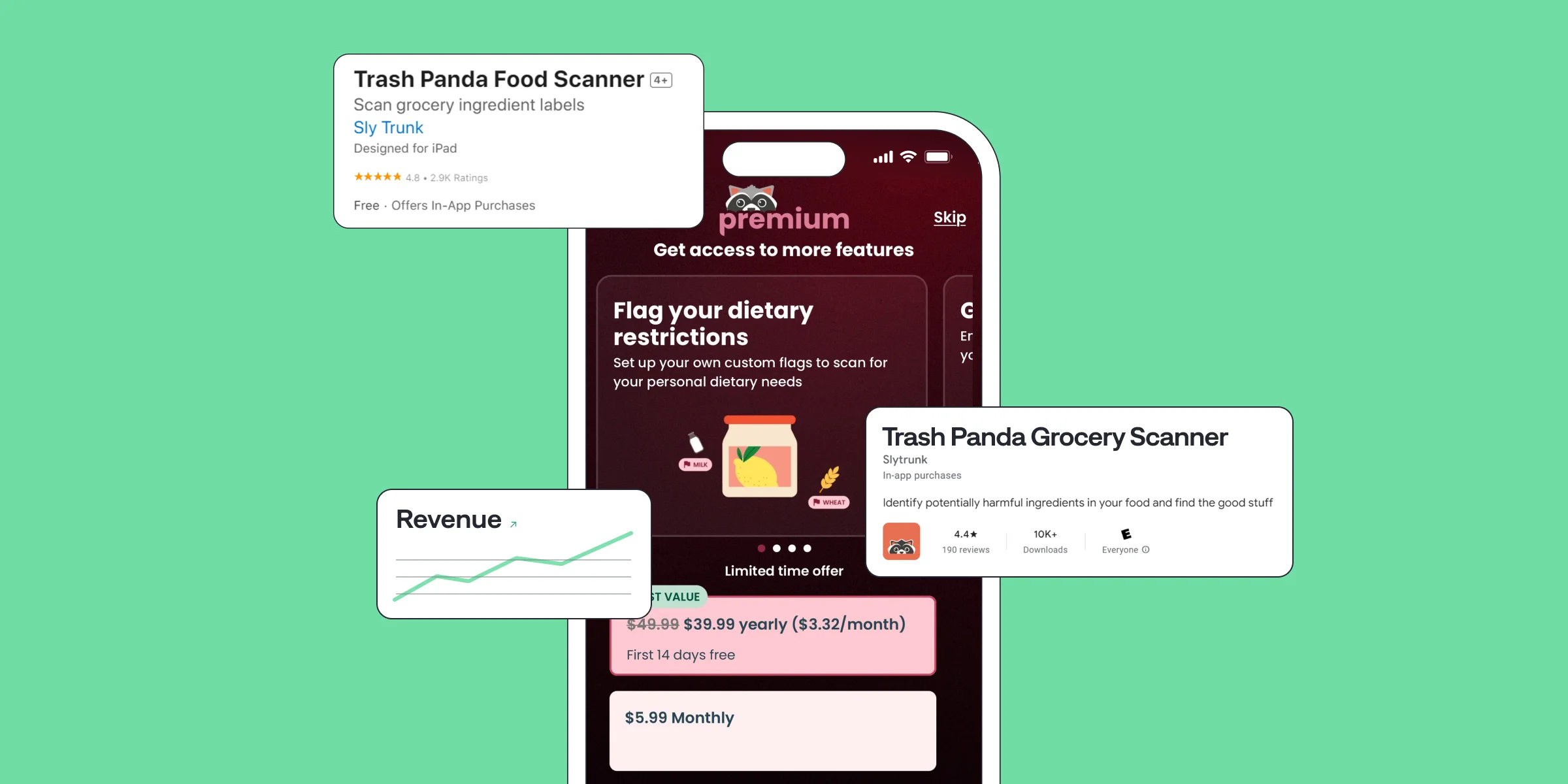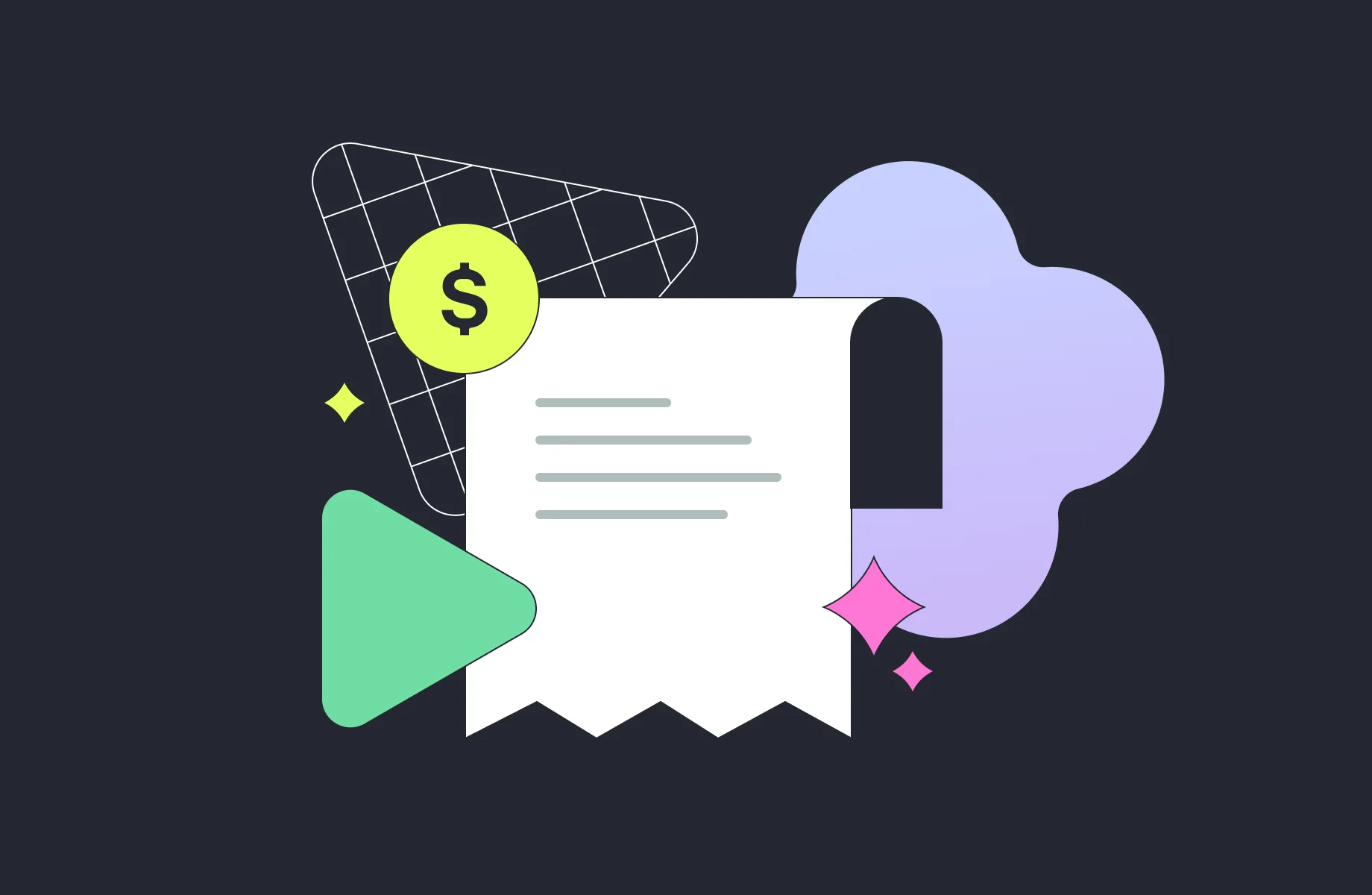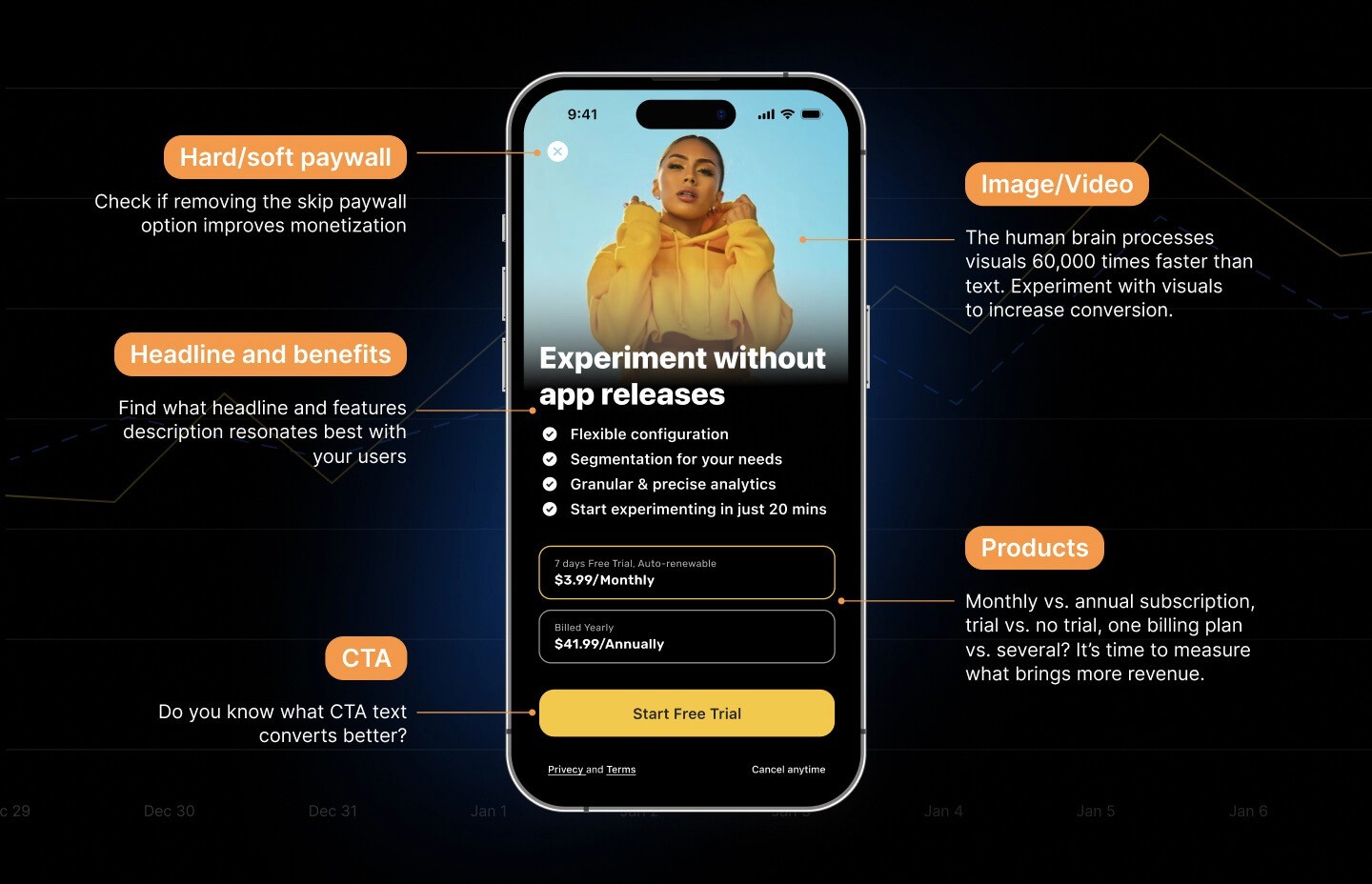Summary
Your mobile app is a testament to your creativity, hard work, and dedication. But there may come a time when selling it becomes a strategic choice or a necessary step due to life’s unpredictable turns. Sometimes, selling this asset is a strategic move, whether for financial gains, seeking new challenges, or adapting to life’s changes. Here’s how you can successfully navigate the process of handing over your digital product to new hands.

Why You Might Sell Your App?
Legal and Technical Steps
Ensuring a seamless sale involves understanding both legal guidelines and technical requirements:
Understanding Guidelines: Familiarize yourself with platform guidelines (Apple App Store, Google Play) to ensure compliance and smooth transfer.
Preparing for Transfer: Whether transferring the app or your developer account, prepare all necessary documentation and ensure all operational aspects of the app, like third-party services and licenses, are transferable.
Valuing Your App: What’s It Really Worth?
Figuring out how much your app is worth is crucial:
Financial Performance: Start with your app’s revenue and growth trends. Consider both current earnings and potential for future growth.
Key Performance Indicators: Beyond revenue, factors like user engagement and churn rate play a significant role in valuation.
User Base: A loyal and growing user base adds significant value. Highlight metrics like daily active users (DAUs) and monthly active users (MAUs).
Market Position: Your app’s position in the market, unique features, and competitive edge can all increase its value.
Choosing the Right Platform to Showcase Your App
Selecting the appropriate marketplace to list your app for sale is crucial in attracting the right buyers:
Flippa: Known for its wide array of digital products, Flippa allows you to reach a diverse audience of potential buyers specifically interested in mobile apps.
Apptopia: This platform not only facilitates app sales but also provides analytical insights that can be leveraged to improve your app’s listing and appeal.
Acquire:A newer entrant to the digital asset sale space, Acquire.com specializes in connecting sellers with serious buyers across various industries, including tech and apps. Its platform provides a curated experience, aiming to match apps with the right buyers, ensuring a fit that benefits both parties.
Direct Approach: Reaching out to competitors or companies within your app’s niche can sometimes yield direct sales opportunities, often at a higher valuation due to strategic fit.
Determining Your App’s Market Value: A Closer Look
Valuing your app is a multifaceted process, requiring consideration of both tangible and intangible assets:
Revenue Streams: Include a detailed analysis of all revenue sources, not just app sales but in-app purchases, subscriptions, and ad revenue.
User Base Quality: A loyal, engaged user base is invaluable. For example, an app with a high lifetime value (LTV) per user or a strong community can command a higher price.
Unique Selling Proposition (USP): What makes your app stand out? Whether it’s a patented technology, exclusive content, or a unique algorithm, highlight these elements.
Key Metrics That Influence App Valuation
Diving deeper into the metrics, certain factors weigh heavily in an app’s valuation process:
Active User Metrics: Daily and monthly active users (DAUs/MAUs) provide insights into the app’s stickiness and user engagement.
Growth Trajectory: Historical data showcasing user growth rates, revenue trends, and market expansion can significantly influence buyer interest.
User Acquisition Cost (UAC) vs. Lifetime Value (LTV): An app that demonstrates a favorable ratio of acquisition cost to user lifetime value presents a compelling case for potential growth.
Venture Perspectives
Understanding how venture capitalists view app investments can offer insights into your app’s potential:
Scalability: Apps with potential for wide-scale user adoption and revenue growth are more attractive to investors.
Operational Business Potential: Apps that can evolve into fully operational businesses hold significant appeal.
Platform-Specific Considerations and Their Impact
The platform on which your app is built can significantly affect its valuation and sale process:
iOS Apps: Generally perceived to have a more lucrative user base willing to spend more on apps.
Android Apps: Offer a broader market reach due to a larger user base, though with varying monetization strategies.
How Qonversion Can Help
Qonversion elevates the selling proposition by providing detailed analytics and subscription insights, thus allowing you to present a data-backed valuation to potential buyers. For instance, showcasing a strong subscription renewal rate or a high average revenue per user (ARPU) can make your app more attractive to buyers looking for a stable income-generating asset.
Qonversion simplifies the due diligence process, providing valuable insights into your app’s performance:
Detailed Analytics: Access user-level data to showcase your app’s health and potential, making it more appealing to buyers.
Subscription Insights: Highlight subscription revenue, engagement metrics, and other key performance indicators that matter to buyers.
Selling your mobile app is a journey fraught with challenges and opportunities. By understanding the market, preparing your app for sale, and leveraging platforms like Qonversion for detailed analytics, you can navigate this process with confidence, ensuring a successful and profitable outcome.
Your mobile app is a testament to your creativity, hard work, and dedication. But there may come a time when selling it becomes a strategic choice or a necessary step due to life’s unpredictable turns. Sometimes, selling this asset is a strategic move, whether for financial gains, seeking new challenges, or adapting to life’s changes. Here’s how you can successfully navigate the process of handing over your digital product to new hands.

Why You Might Sell Your App?
Legal and Technical Steps
Ensuring a seamless sale involves understanding both legal guidelines and technical requirements:
Understanding Guidelines: Familiarize yourself with platform guidelines (Apple App Store, Google Play) to ensure compliance and smooth transfer.
Preparing for Transfer: Whether transferring the app or your developer account, prepare all necessary documentation and ensure all operational aspects of the app, like third-party services and licenses, are transferable.
Valuing Your App: What’s It Really Worth?
Figuring out how much your app is worth is crucial:
Financial Performance: Start with your app’s revenue and growth trends. Consider both current earnings and potential for future growth.
Key Performance Indicators: Beyond revenue, factors like user engagement and churn rate play a significant role in valuation.
User Base: A loyal and growing user base adds significant value. Highlight metrics like daily active users (DAUs) and monthly active users (MAUs).
Market Position: Your app’s position in the market, unique features, and competitive edge can all increase its value.
Choosing the Right Platform to Showcase Your App
Selecting the appropriate marketplace to list your app for sale is crucial in attracting the right buyers:
Flippa: Known for its wide array of digital products, Flippa allows you to reach a diverse audience of potential buyers specifically interested in mobile apps.
Apptopia: This platform not only facilitates app sales but also provides analytical insights that can be leveraged to improve your app’s listing and appeal.
Acquire:A newer entrant to the digital asset sale space, Acquire.com specializes in connecting sellers with serious buyers across various industries, including tech and apps. Its platform provides a curated experience, aiming to match apps with the right buyers, ensuring a fit that benefits both parties.
Direct Approach: Reaching out to competitors or companies within your app’s niche can sometimes yield direct sales opportunities, often at a higher valuation due to strategic fit.
Determining Your App’s Market Value: A Closer Look
Valuing your app is a multifaceted process, requiring consideration of both tangible and intangible assets:
Revenue Streams: Include a detailed analysis of all revenue sources, not just app sales but in-app purchases, subscriptions, and ad revenue.
User Base Quality: A loyal, engaged user base is invaluable. For example, an app with a high lifetime value (LTV) per user or a strong community can command a higher price.
Unique Selling Proposition (USP): What makes your app stand out? Whether it’s a patented technology, exclusive content, or a unique algorithm, highlight these elements.
Key Metrics That Influence App Valuation
Diving deeper into the metrics, certain factors weigh heavily in an app’s valuation process:
Active User Metrics: Daily and monthly active users (DAUs/MAUs) provide insights into the app’s stickiness and user engagement.
Growth Trajectory: Historical data showcasing user growth rates, revenue trends, and market expansion can significantly influence buyer interest.
User Acquisition Cost (UAC) vs. Lifetime Value (LTV): An app that demonstrates a favorable ratio of acquisition cost to user lifetime value presents a compelling case for potential growth.
Venture Perspectives
Understanding how venture capitalists view app investments can offer insights into your app’s potential:
Scalability: Apps with potential for wide-scale user adoption and revenue growth are more attractive to investors.
Operational Business Potential: Apps that can evolve into fully operational businesses hold significant appeal.
Platform-Specific Considerations and Their Impact
The platform on which your app is built can significantly affect its valuation and sale process:
iOS Apps: Generally perceived to have a more lucrative user base willing to spend more on apps.
Android Apps: Offer a broader market reach due to a larger user base, though with varying monetization strategies.
How Qonversion Can Help
Qonversion elevates the selling proposition by providing detailed analytics and subscription insights, thus allowing you to present a data-backed valuation to potential buyers. For instance, showcasing a strong subscription renewal rate or a high average revenue per user (ARPU) can make your app more attractive to buyers looking for a stable income-generating asset.
Qonversion simplifies the due diligence process, providing valuable insights into your app’s performance:
Detailed Analytics: Access user-level data to showcase your app’s health and potential, making it more appealing to buyers.
Subscription Insights: Highlight subscription revenue, engagement metrics, and other key performance indicators that matter to buyers.
Selling your mobile app is a journey fraught with challenges and opportunities. By understanding the market, preparing your app for sale, and leveraging platforms like Qonversion for detailed analytics, you can navigate this process with confidence, ensuring a successful and profitable outcome.
Your mobile app is a testament to your creativity, hard work, and dedication. But there may come a time when selling it becomes a strategic choice or a necessary step due to life’s unpredictable turns. Sometimes, selling this asset is a strategic move, whether for financial gains, seeking new challenges, or adapting to life’s changes. Here’s how you can successfully navigate the process of handing over your digital product to new hands.

Why You Might Sell Your App?
Legal and Technical Steps
Ensuring a seamless sale involves understanding both legal guidelines and technical requirements:
Understanding Guidelines: Familiarize yourself with platform guidelines (Apple App Store, Google Play) to ensure compliance and smooth transfer.
Preparing for Transfer: Whether transferring the app or your developer account, prepare all necessary documentation and ensure all operational aspects of the app, like third-party services and licenses, are transferable.
Valuing Your App: What’s It Really Worth?
Figuring out how much your app is worth is crucial:
Financial Performance: Start with your app’s revenue and growth trends. Consider both current earnings and potential for future growth.
Key Performance Indicators: Beyond revenue, factors like user engagement and churn rate play a significant role in valuation.
User Base: A loyal and growing user base adds significant value. Highlight metrics like daily active users (DAUs) and monthly active users (MAUs).
Market Position: Your app’s position in the market, unique features, and competitive edge can all increase its value.
Choosing the Right Platform to Showcase Your App
Selecting the appropriate marketplace to list your app for sale is crucial in attracting the right buyers:
Flippa: Known for its wide array of digital products, Flippa allows you to reach a diverse audience of potential buyers specifically interested in mobile apps.
Apptopia: This platform not only facilitates app sales but also provides analytical insights that can be leveraged to improve your app’s listing and appeal.
Acquire:A newer entrant to the digital asset sale space, Acquire.com specializes in connecting sellers with serious buyers across various industries, including tech and apps. Its platform provides a curated experience, aiming to match apps with the right buyers, ensuring a fit that benefits both parties.
Direct Approach: Reaching out to competitors or companies within your app’s niche can sometimes yield direct sales opportunities, often at a higher valuation due to strategic fit.
Determining Your App’s Market Value: A Closer Look
Valuing your app is a multifaceted process, requiring consideration of both tangible and intangible assets:
Revenue Streams: Include a detailed analysis of all revenue sources, not just app sales but in-app purchases, subscriptions, and ad revenue.
User Base Quality: A loyal, engaged user base is invaluable. For example, an app with a high lifetime value (LTV) per user or a strong community can command a higher price.
Unique Selling Proposition (USP): What makes your app stand out? Whether it’s a patented technology, exclusive content, or a unique algorithm, highlight these elements.
Key Metrics That Influence App Valuation
Diving deeper into the metrics, certain factors weigh heavily in an app’s valuation process:
Active User Metrics: Daily and monthly active users (DAUs/MAUs) provide insights into the app’s stickiness and user engagement.
Growth Trajectory: Historical data showcasing user growth rates, revenue trends, and market expansion can significantly influence buyer interest.
User Acquisition Cost (UAC) vs. Lifetime Value (LTV): An app that demonstrates a favorable ratio of acquisition cost to user lifetime value presents a compelling case for potential growth.
Venture Perspectives
Understanding how venture capitalists view app investments can offer insights into your app’s potential:
Scalability: Apps with potential for wide-scale user adoption and revenue growth are more attractive to investors.
Operational Business Potential: Apps that can evolve into fully operational businesses hold significant appeal.
Platform-Specific Considerations and Their Impact
The platform on which your app is built can significantly affect its valuation and sale process:
iOS Apps: Generally perceived to have a more lucrative user base willing to spend more on apps.
Android Apps: Offer a broader market reach due to a larger user base, though with varying monetization strategies.
How Qonversion Can Help
Qonversion elevates the selling proposition by providing detailed analytics and subscription insights, thus allowing you to present a data-backed valuation to potential buyers. For instance, showcasing a strong subscription renewal rate or a high average revenue per user (ARPU) can make your app more attractive to buyers looking for a stable income-generating asset.
Qonversion simplifies the due diligence process, providing valuable insights into your app’s performance:
Detailed Analytics: Access user-level data to showcase your app’s health and potential, making it more appealing to buyers.
Subscription Insights: Highlight subscription revenue, engagement metrics, and other key performance indicators that matter to buyers.
Selling your mobile app is a journey fraught with challenges and opportunities. By understanding the market, preparing your app for sale, and leveraging platforms like Qonversion for detailed analytics, you can navigate this process with confidence, ensuring a successful and profitable outcome.
Your mobile app is a testament to your creativity, hard work, and dedication. But there may come a time when selling it becomes a strategic choice or a necessary step due to life’s unpredictable turns. Sometimes, selling this asset is a strategic move, whether for financial gains, seeking new challenges, or adapting to life’s changes. Here’s how you can successfully navigate the process of handing over your digital product to new hands.

Why You Might Sell Your App?
Legal and Technical Steps
Ensuring a seamless sale involves understanding both legal guidelines and technical requirements:
Understanding Guidelines: Familiarize yourself with platform guidelines (Apple App Store, Google Play) to ensure compliance and smooth transfer.
Preparing for Transfer: Whether transferring the app or your developer account, prepare all necessary documentation and ensure all operational aspects of the app, like third-party services and licenses, are transferable.
Valuing Your App: What’s It Really Worth?
Figuring out how much your app is worth is crucial:
Financial Performance: Start with your app’s revenue and growth trends. Consider both current earnings and potential for future growth.
Key Performance Indicators: Beyond revenue, factors like user engagement and churn rate play a significant role in valuation.
User Base: A loyal and growing user base adds significant value. Highlight metrics like daily active users (DAUs) and monthly active users (MAUs).
Market Position: Your app’s position in the market, unique features, and competitive edge can all increase its value.
Choosing the Right Platform to Showcase Your App
Selecting the appropriate marketplace to list your app for sale is crucial in attracting the right buyers:
Flippa: Known for its wide array of digital products, Flippa allows you to reach a diverse audience of potential buyers specifically interested in mobile apps.
Apptopia: This platform not only facilitates app sales but also provides analytical insights that can be leveraged to improve your app’s listing and appeal.
Acquire:A newer entrant to the digital asset sale space, Acquire.com specializes in connecting sellers with serious buyers across various industries, including tech and apps. Its platform provides a curated experience, aiming to match apps with the right buyers, ensuring a fit that benefits both parties.
Direct Approach: Reaching out to competitors or companies within your app’s niche can sometimes yield direct sales opportunities, often at a higher valuation due to strategic fit.
Determining Your App’s Market Value: A Closer Look
Valuing your app is a multifaceted process, requiring consideration of both tangible and intangible assets:
Revenue Streams: Include a detailed analysis of all revenue sources, not just app sales but in-app purchases, subscriptions, and ad revenue.
User Base Quality: A loyal, engaged user base is invaluable. For example, an app with a high lifetime value (LTV) per user or a strong community can command a higher price.
Unique Selling Proposition (USP): What makes your app stand out? Whether it’s a patented technology, exclusive content, or a unique algorithm, highlight these elements.
Key Metrics That Influence App Valuation
Diving deeper into the metrics, certain factors weigh heavily in an app’s valuation process:
Active User Metrics: Daily and monthly active users (DAUs/MAUs) provide insights into the app’s stickiness and user engagement.
Growth Trajectory: Historical data showcasing user growth rates, revenue trends, and market expansion can significantly influence buyer interest.
User Acquisition Cost (UAC) vs. Lifetime Value (LTV): An app that demonstrates a favorable ratio of acquisition cost to user lifetime value presents a compelling case for potential growth.
Venture Perspectives
Understanding how venture capitalists view app investments can offer insights into your app’s potential:
Scalability: Apps with potential for wide-scale user adoption and revenue growth are more attractive to investors.
Operational Business Potential: Apps that can evolve into fully operational businesses hold significant appeal.
Platform-Specific Considerations and Their Impact
The platform on which your app is built can significantly affect its valuation and sale process:
iOS Apps: Generally perceived to have a more lucrative user base willing to spend more on apps.
Android Apps: Offer a broader market reach due to a larger user base, though with varying monetization strategies.
How Qonversion Can Help
Qonversion elevates the selling proposition by providing detailed analytics and subscription insights, thus allowing you to present a data-backed valuation to potential buyers. For instance, showcasing a strong subscription renewal rate or a high average revenue per user (ARPU) can make your app more attractive to buyers looking for a stable income-generating asset.
Qonversion simplifies the due diligence process, providing valuable insights into your app’s performance:
Detailed Analytics: Access user-level data to showcase your app’s health and potential, making it more appealing to buyers.
Subscription Insights: Highlight subscription revenue, engagement metrics, and other key performance indicators that matter to buyers.
Selling your mobile app is a journey fraught with challenges and opportunities. By understanding the market, preparing your app for sale, and leveraging platforms like Qonversion for detailed analytics, you can navigate this process with confidence, ensuring a successful and profitable outcome.
Start Now for Free
Or book a demo with our team to learn more about Qonversion
Start Now for Free
Or book a demo with our team to learn more about Qonversion
Start Now for Free
Or book a demo with our team to learn more about Qonversion
Read more
Read more

Trash Panda Maximizes App Revenue after Setting the Best Subscription Price with A/B Tests
Jul 8, 2024
Jul 8, 2024

How StyleDNA Saved 20% Development Time and Unlocked New Features
Jun 19, 2024
Jun 19, 2024

WWDC24 Updates for App Developers | What's new in Storekit 2 and App Store Server API?
Jun 17, 2024
Jun 17, 2024

How A/B Testing with Qonversion Helped Iben Sandahl’s Parenting App Double Their Sales
Jun 13, 2024
Jun 13, 2024

Trash Panda Maximizes App Revenue after Setting the Best Subscription Price with A/B Tests
Jul 8, 2024
Jul 8, 2024

How StyleDNA Saved 20% Development Time and Unlocked New Features
Jun 19, 2024
Jun 19, 2024

WWDC24 Updates for App Developers | What's new in Storekit 2 and App Store Server API?
Jun 17, 2024
Jun 17, 2024








